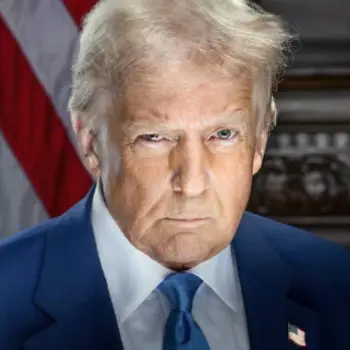Vets for Trump, Mac, Mike and Vlad on Russia-Ukraine Peace Negotiations.
Summary
Vlad, who has lived in both Ukraine and Russia before moving to the U.S. and serving in the US Army, providing a unique perspective on the ongoing conflict.
Main Points Discussed:
- Vlad’s Background:
- Born in Ukraine, raised in Russia, moved to the US, and served in the US Army. He has family in both countries involved in the conflict.
- Current Negotiations:
- Donald Trump is set to start peace talks, which has caused some discontent from Ukrainian President Volodymyr Zelenskyy, particularly because European involvement is being minimized for these talks.
- Leadership Popularity:
- Putin enjoys high popularity in Russia (78-80%), while Zelenskyy’s popularity in Ukraine has dropped to 22%. This is discussed in the context of Zelenskyy’s decisions like suspending elections and controlling media.
- Peace Talks Strategy:
- The discussion emphasizes the need for direct talks between major powers (US, Russia) before involving smaller nations or regions due to past failed negotiations with too many parties involved.
- Cultural and Political Issues:
- The podcast touches on the cultural identity crisis in Ukraine due to the suppression of the Ukrainian Orthodox Church and how this impacts the conflict and peace prospects.
- Military and Territorial Considerations:
- Analysis of the strategic importance of regions like Luhansk and Donetsk, suggesting these areas are unlikely to return to Ukrainian control due to their cultural and political alignment with Russia.
- US and NATO Role:
- The conversation highlights the impracticality of Ukraine joining NATO due to geopolitical tensions and the risk of escalating to a scenario akin to the Cuban Missile Crisis.
- Realism vs. Appeasement:
- Trump’s approach of contacting Russia first is framed as realism rather than appeasement, focusing on de-escalation and dealing with nuclear superpowers directly.
- Economic and Political Implications:
- The discussion critiques the financial and political support from the US and Europe, questioning the sustainability and motives behind such support.
- Future Outlook:
- Speculation on how peace might be achieved, suggesting that without US and European support, Ukraine might be forced into a peace agreement, regardless of Zelenskyy’s stance.
Closing Remarks:
- The episode ends with a call for non-interventionism, reflecting on US foreign policy and domestic fiscal strategies, suggesting a return to historical policies like the Monroe Doctrine and tax-based funding.
This podcast provides a deep dive into the complexities of international relations, with an emphasis on personal experiences and geopolitical strategy.
Discover more from Veterans for Trump
Subscribe to get the latest posts sent to your email.











